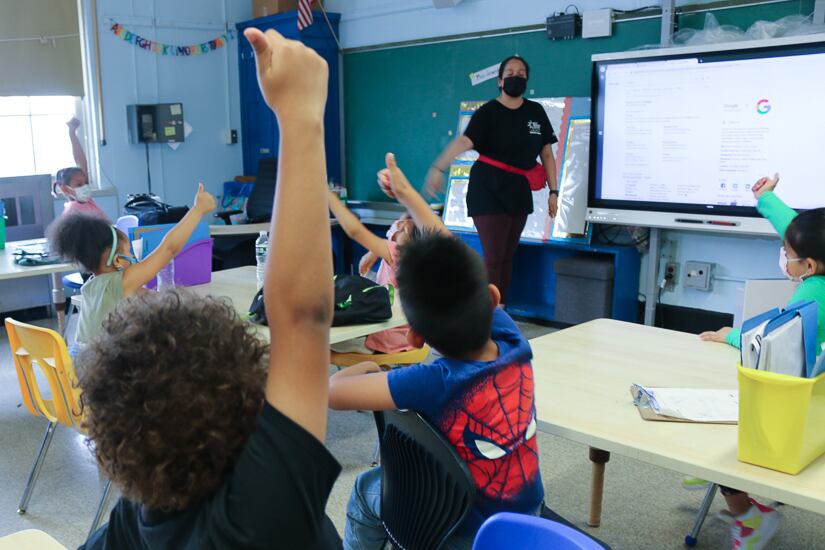As summer approaches, New York City families should expect changes in the sign-up process and who will be given priority for the city’s sprawling public summer enrichment program, which will again be open to 110,000 children.
Summer Rising — launched under former Mayor Bill de Blasio in the summer of 2021 with the help of federal COVID relief dollars — offers academic and enrichment programs to elementary and middle school students, even if they’re not mandated for summer school.
Last year’s program was offered on a first come, first served basis — leading to a mad rush of applications that filled up most school sites within a week of enrollment opening. In response to concerns about enrollment, this year the city will ditch the first come, first served model, said Keith Howard, commissioner of the city’s Department of Youth and Community Development, or DYCD, during a City Council hearing on Wednesday.
Families, who will also be able to rank their preferences for school sites, can sign up during the whole enrollment period, which will open in early April, said Howard, whose agency partners with the education department on running Summer Rising. This suggests that there will be a lottery process though city officials declined to confirm that or share more details with Chalkbeat.
“We’ll have more to share in the coming days, and we are prioritizing getting the needed information to our families and school communities,” said Mark Zustovich, a DYCD spokesperson, in a statement.
In another significant change, students who are already attending one of the city’s hundreds of DYCD-run after-school programs will also receive priority at the schools where their after-school provider runs Summer Rising. This move is meant “to accommodate families who are accustomed to year round programming,” Howard told the City Council.
Like last year, seats will be prioritized for students in temporary housing, students mandated for summer school, and those with disabilities, though officials did not immediately share how many of these seats would be set aside or if the seats for students with disabilities would be separate from those who are mandated to attend school for 12 months on their individualized education programs, or IEPs.
Neither DYCD nor education department officials immediately shared how all of these priorities would be ranked.
Randi Levine, policy director for Advocates for Children, said her group was happy about the end of the first come, first served enrollment process. She said many families who “needed more support to apply” didn’t get spots, including the very people who were supposed to be prioritized, such as children in shelters.
“We heard from families living in shelter and immigrant families that they did not know about Summer Rising in time to get seats for their children and heard from staff at shelters that when they went to help families enroll, the seats were already gone.”
At the same time, under the enrollment system last year, there weren’t many seats left for students who attended the school if they weren’t in one of the priority groups, said Erica N. Oquendo, division director of youth and family services for Cypress Hills Local Development Corporation, which expects to oversee Summer Rising programs in at least eight schools this summer and also runs eight DYCD after-school programs.
Another issue for Oquendo: Sometimes last summer, she saw children sign up for seats but never show up. To her frustration, her organization didn’t have control over unenrolling that child and offering their seat to someone else in need — an issue that must still be addressed, she said.
While the changes announced Wednesday could mean more seats for students already attending a given school, Oquendo craved more details about how the various priorities would be ranked.
“That’s the hard part — I wouldn’t necessarily say I would want to prioritize an after-school student over a child in a homeless shelter,” Oquendo said. “How do we measure the level of care that’s needed?”
Reema Amin is a reporter covering New York City public schools. Contact Reema at ramin@chalkbeat.org.






